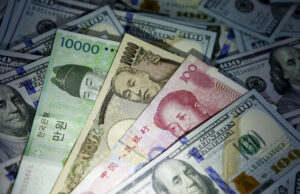Dialectics of Democracy

Like countless other people quarantined by COVID protocols, I sought solace in, among others, auditory stimulation. Those of us with more educated hearing found it in, say, Rachmaninoff’s 2nd Piano Concerto or Bach’s fugues. I rather sought it in the more accessible airs of my generation. Among them is John Denver’s lovely tune “Perhaps Love” with its eternal comfort for every age.
But while one can get lost in one’s own heavily, though perhaps subconsciously, photoshopped personal past, one cannot ignore the present’s sometimes unpleasant realities.
On May 9, Filipinos will go to the polls to elect, among others, a new president. Will we have a renewal and catharsis for which democratic elections were originally intended or will we have even deeper divisions and rancor? Putin’s war in Ukraine is raging with thousands of innocent lives mangled or snuffed out. The price of oil and gas is spiking with higher price of food, more hunger and poverty in tow. Net direct foreign investment (DFI) remains on retreat (16% in January) while foreign investment pledges to PEZA (Philippine Economic Zone Authority) shrank 94% in Feb. 2022, upending all the Departments of Trade and Industry and of Finance’s (DTI and DOF) cheery prognosis of bloated DFI response to CREATE and PSA (Corporate Recovery and Tax Incentives for Enterprises and Public Service Act) laws. The economy has shrunk and the burning question is who among the candidates can engineer the best rebound.
Easter Monday saw social media screaming about the macho laggards in the May 9 presidential race advising VP Leni, the strongest among the pursuers — with a preference rating of 24% and rising — to quit. The crabbiest of crab mentalities on display! As expected, the wriggle out artists came out in force on the days following: “Not I,” said the cat, “I wasn’t in the podium.” “Not I,” said the dog, “I wasn’t even in the room.” “I won’t apologize for a rhetorical revert,” said the goat.
For as everyone knows, time-worn wisdom suggests the exact opposite. Nicolo Machiavelli (The Prince) once counseled that the best strategy for also-runs is to rally around the second strongest to keep the strongest from making slaves of everyone else. To rally away from the best challenger is just currying favor with the frontrunner, who was surely elated to know who his real friends are.
For not all tributaries are created equal. Currying favor with the strongest can earn one a higher caste tributary, a tax farmer perhaps, exacting tribute from lower caste tributaries and growing rich from crumbs deliberately misplaced. A tributary collector for the overlord is no small reward for playing into the overlord’s design. The Benedictos, the Enriles, the Floirendos, Cojuangcos, and the Lucio Tans did very well indeed as high caste tribute collectors for dictator Ferdinand Marcos.
Subsequent regimes were either incapable or unwilling to punish Ka Ferdie’s co-blood suckers. As national artist, F. Sionil Jose (may he rest in peace) once put it with utter venom, “This is what ails us all — we do not ostracize them, we do not punish them -— no, we anoint these vermin instead.” It seems we are once again embarked on our vaunted tradition of anointing vermin: number crunchers maintain the May 9 vote will, absent cataclysmic events, hand the presidency over to one whose only claim to fame was a conviction for tax evasion. He keeps mum as to what he will do apart from protecting his family and recoating his father’s legacy. Since, according to the old adage, “The apple does not fall far from the tree,” instead of punishing, he may well reward his father’s centurions with a burial in the Libingan ng mga Bayani. That will reunite in death what in life was a glorious brotherhood of plunder and lies.
Democracy is strange that way: it sometimes commits suicide. People can vote freely to put on their shackles. In 1932, the highly educated democratic Weimar Republic voters handed Adolf Hitler and his goons the mantle of power. It was democratic suicide. “Uncle” Adolf ran with the scepter into the unthinkable horrors of death, destruction, and gas chambers. In 2017, the world’s so-called bastion of democracy, the USA, the public voted freely to hand the scepter of power to Donald Trump who only narrowly, by the grace of God or sheer luck, failed to engineer the execution of US democracy.
In our case, cold punters insist that, cataclysms aside, the May 9 elections will hand the presidency over to a convicted tax evader, one who from his father has the genes to turn the whole country into his personal tax-free tributary and from his mother to turn the judiciary into an umbrella holder, a bit of personal bling few autocrats can match! A Philippines run like hell? But if the vote is reasonably clean, his presidency, like Hitler’s or Putin’s, would be vox Dei.
One may object: “But true democracy is predicated on the voters deciding on the basis of truths not un-truths.” Such objection is deep. It was the underlying assumption of the Condorcet Jury Theorems in the political science of voting: an electorate with a higher than 50% competence to decide correctly, will beat any autocrat in decision competence (vox Dei); but the opposite is also true: an electorate of less than 50% competence will be beaten in decision competence by any average autocrat (vox Diaboli)! The electorate will also additionally have to don the famous Rawlsian “veil of ignorance”: a temporary amnesia to individual, family, and class built-in advantages. Well-nigh impossible in the age of “fake news” and “echo chambers”!
For who determines truths from untruths in the post-truth era? Democracy precisely celebrates diversity of thought, lifestyles, and values. Contradictions are bound to arise as Kenneth Arrow (1950) reminded us before the age of the internet. Modern human coexistence survives in a form we call “truth apartheid” whose motto is “To each his/her own truth.” Thus, the “cancel culture.” And apartheid always presumes cancellable “heathens.” Putin has his truths and thus its cancellable heathens; Qi Jin Ping has his. Biden has his. If we subject these competing “truths” to a clean global one-man-one-vote tournament, Xi Jinping’s “truths” would likely win. It is no different if we choose outcomes (economic growth and poverty reduction) rather than process (one-man-one-vote) as criterion.
In the dialectics of democracy, the truth is elusive if it exists at all. To Pontius Pilate’s question “What is truth?,” Jesus Christ responded with a deafening silence. It seemed a query too tricky even for the divine. What is democracy? I prefer to register my own silence through the lyrics of John Denver’s “Perhaps Love.”
“For love to some is like a cloud, for some as strong as steel. For some a way of living, for some a way to feel. And some say love is holding on and some say letting go. And some say love is everything and some say they don’t know.”
Substitute “democracy” for “love” in Denver’s lines and we have, to my limited mind, a dialectics of democracy as good as any.
Raul V. Fabella is a retired professor of the UP School of Economics, a member of the National Academy of Science and Technology and an honorary professor of the Asian Institute of Management. He gets his dopamine fix from bicycling and tending flowers with his wife Teena.




